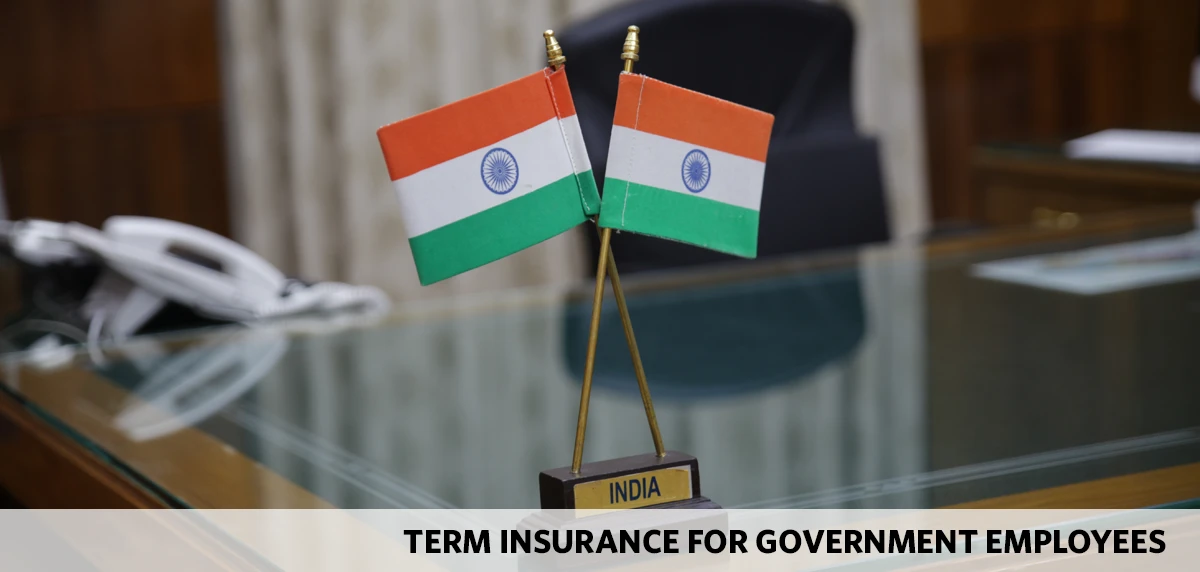Term insurance is a popular form of life insurance offering financial protection to the policyholder’s beneficiaries in case of the insured's untimely demise. However, unlike other forms of life insurance, term insurance typically does not accumulate cash value.
Let’s explore whether term life insurance plans provide cash value, the key features of term insurance, and how they differ from other life insurance policies.
What is Term Insurance?
Term insurance is a straightforward and affordable life insurance policy providing coverage for a specified term, typically ranging from 5 to 40 years, depending on a couple of other factors and to a certain extent, according to the policyholder’s preference. If the insured person passes away during the policy term, the beneficiaries receive the death benefit, which is the sum assured. The primary objective of term insurance is to offer financial security to the insured’s family, ensuring that their financial needs are met in the absence of the primary breadwinner.
Understanding Cash Value in Life Insurance Policies
Cash value is a feature commonly associated with certain types of life insurance policies, such as whole life insurance and ULIP. These policies combine a death benefit with a savings or investment component, allowing the policyholder to build cash value over time. The cash value grows on a tax-deferred basis and is usually offered as a maturity benefit.**
A cash value component in the form of maturity benefit is commonly found in whole life insurance. This is a permanent life insurance policy that provides coverage for the insured’s entire lifetime, usually up to 100 years of age.
Other policies such as ULIPs or endowment plans are incorporated with a cash value aspect through market-linked investment and guaranteed savings, respectively. Some policies also offer cash value in the form of partial withdrawals.
Does Term Insurance Provide Cash Value?
Term insurance, by its nature, does not offer cash value. The entire premium paid towards a term insurance policy goes towards covering the risk of the insured’s death during the policy term. There is no savings or investment component in a term insurance policy, meaning it does not accumulate any cash value over time.
Why Doesn’t Term Insurance Offer Cash Value?
Looking carefully at the structure of level term life insurance plans, you may notice some of the following as reasons for the lack of a cash value component.
The absence of a cash value component in term insurance is one of the reasons why the premiums are much lower compared to whole life or universal life insurance policies. The policyholder is only paying for the risk coverage.
Term insurance is designed to be a simple and straightforward form of life insurance. The focus is on providing maximum coverage at an affordable cost, without the complexities of cash value accumulation.
Comparing Term Insurance with Cash Value Life Insurance Policies
When deciding between term insurance and a cash value life insurance policy, it’s essential to consider your financial goals and needs. Here’s a comparison to help you understand the differences:
Feature
| Term Insurance
| Cash Value Life Insurance
|
Premiums
| Lower
| Higher
|
Coverage
| Fixed term (e.g., 20 years)
| Lifetime coverage
|
Cash Value Accumulation
| None
| Yes (grows over time)
|
Policy Loans/Withdrawals
| Not applicable
| Yes (from accumulated cash value)
|
Policy Objective
| Pure risk protection
| Risk protection + savings/investment component
|
Term Insurance Calculator
| Useful for determining affordable coverage
| Not applicable
|
When to Consider Cash Value Life Insurance?
While term insurance is ideal for pure protection, there are scenarios where a cash value life insurance policy may be more suitable:
Long-Term Financial Planning
Individuals looking for a life insurance also acting as a savings or investment vehicle might prefer a cash value life insurance policy.
Those who wish to leave a legacy or ensure their estate has enough liquidity to cover taxes and other expenses might find cash value life insurance beneficial.**
A cash value policy offers flexibility in premium payments and allows policyholders to borrow against the accumulated cash value, which can be useful in financial emergencies.
How to Choose the Right Insurance?
Choosing between term insurance and cash value life insurance depends on your financial goals, budget, and protection needs. Here are some tips:
Assess Your Financial Obligations: Use a term insurance calculator to determine the coverage amount needed to protect your family in case of your untimely death.
Consider Your Long-Term Goals: If your goal is pure protection, term insurance is likely the best option. However, if you’re looking for both protection and savings, consider a cash value life insurance policy.
Budget Constraints: If affordability is a concern, term insurance is generally the better option due to its lower premiums.
Term life insurance plans remain one of the most cost-effective ways to secure a substantial life insurance policy, providing peace of mind and financial protection to your loved ones. Understanding the differences between term insurance and cash value life insurance policies is crucial in making an informed decision aligning with your financial objectives. Using tools such as a term insurance calculator can help you determine the appropriate coverage, ensuring your family’s future is well protected.
** Tax exemptions are as per applicable tax laws from time to time.
Disclaimers:
Unit Linked Insurance Products are different from the traditional insurance products and are subject to risk factors. The Premium paid in unit-linked life insurance policies are subject to investment risks associated with capital markets and NAVs of the units may go up or down, based on the performance of fund and factors influencing the capital market and the insured is responsible for his/her decisions. IndiaFirst Life Insurance Company Limited is only name of the Insurance Company and _________________ (UIN__________) is only the name of the Unit Linked Life Insurance contract and does not in any way indicate the quality of the contract, its future prospects, or returns. Please know the associated risks and the applicable charges from your Insurance Agent or the Intermediary or policy document issued by the Insurance Company. The various funds offered under this contract are the names of the funds and do not in any way indicate the quality of these plans, their future prospects and returns. For more details on risk factors and terms and conditions, please read the sales brochure carefully before concluding the sale.
IndiaFirst Life Insurance Company Limited, IRDAI Regn No.143, CIN: U66010MH2008PLC183679, Address: 12th & 13th floor, North [C] Wing, Tower 4, Nesco IT Park, Nesco Center, Western Express Highway, Goregaon (East), Mumbai – 400 063. Toll free No – 1800 209 8700. Email Id:customer.first@indiafirstlife.com, Website :www.indiafirstlife.com, Fax No. +91226570600. Trade logo displayed above belongs to our promoter M/s Bank of Baroda and is used by IndiaFirst Life Insurance Co. Ltd. under license. Adv. Ref. No.:_________.
BEWARE OF SPURIOUS/ FRAUD PHONE CALLS!
|
IRDAI is not involved in activities like selling insurance policies, announcing bonus or Investment of premiums. Public receiving such phone calls are requested to lodge a police complaint.
|
























